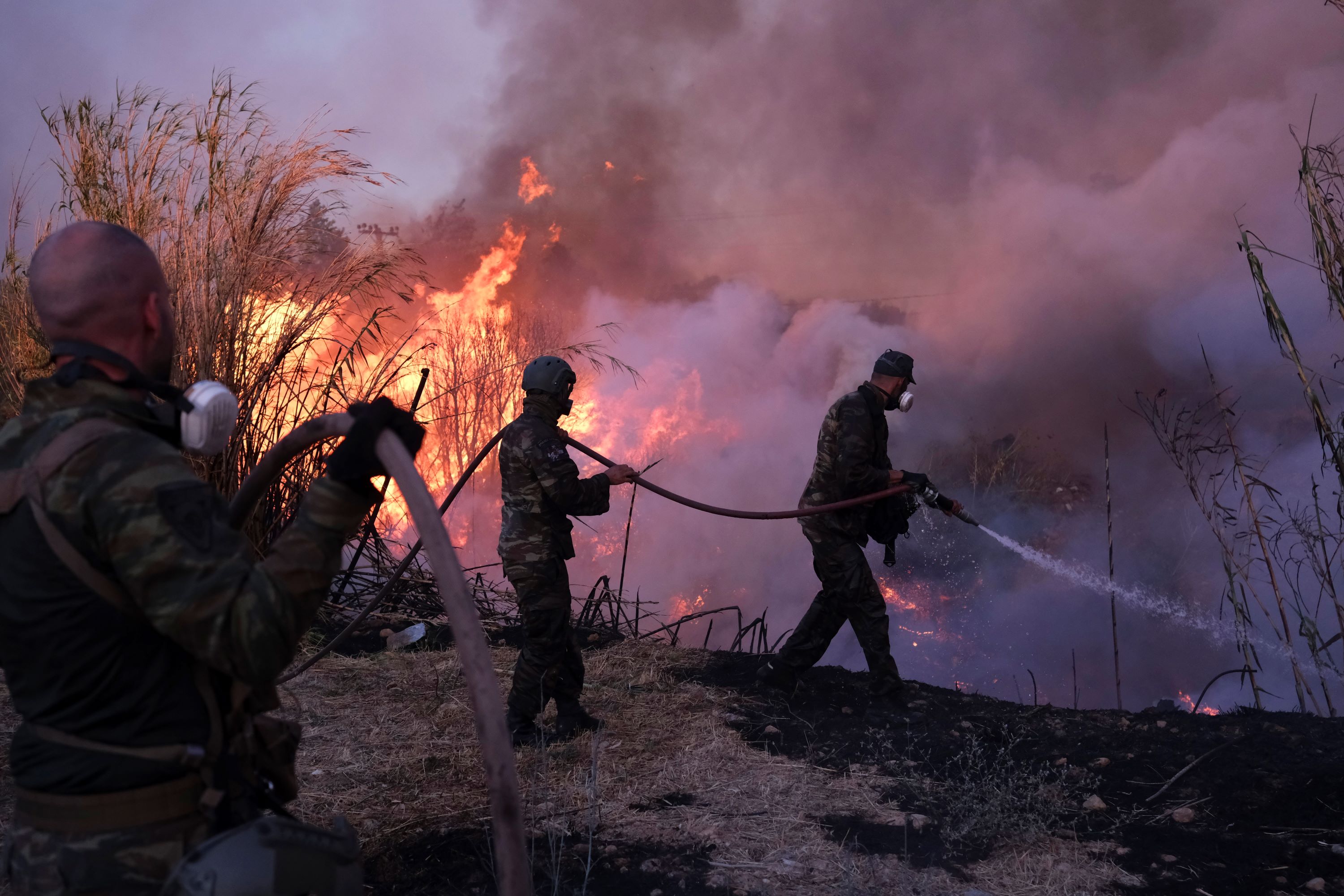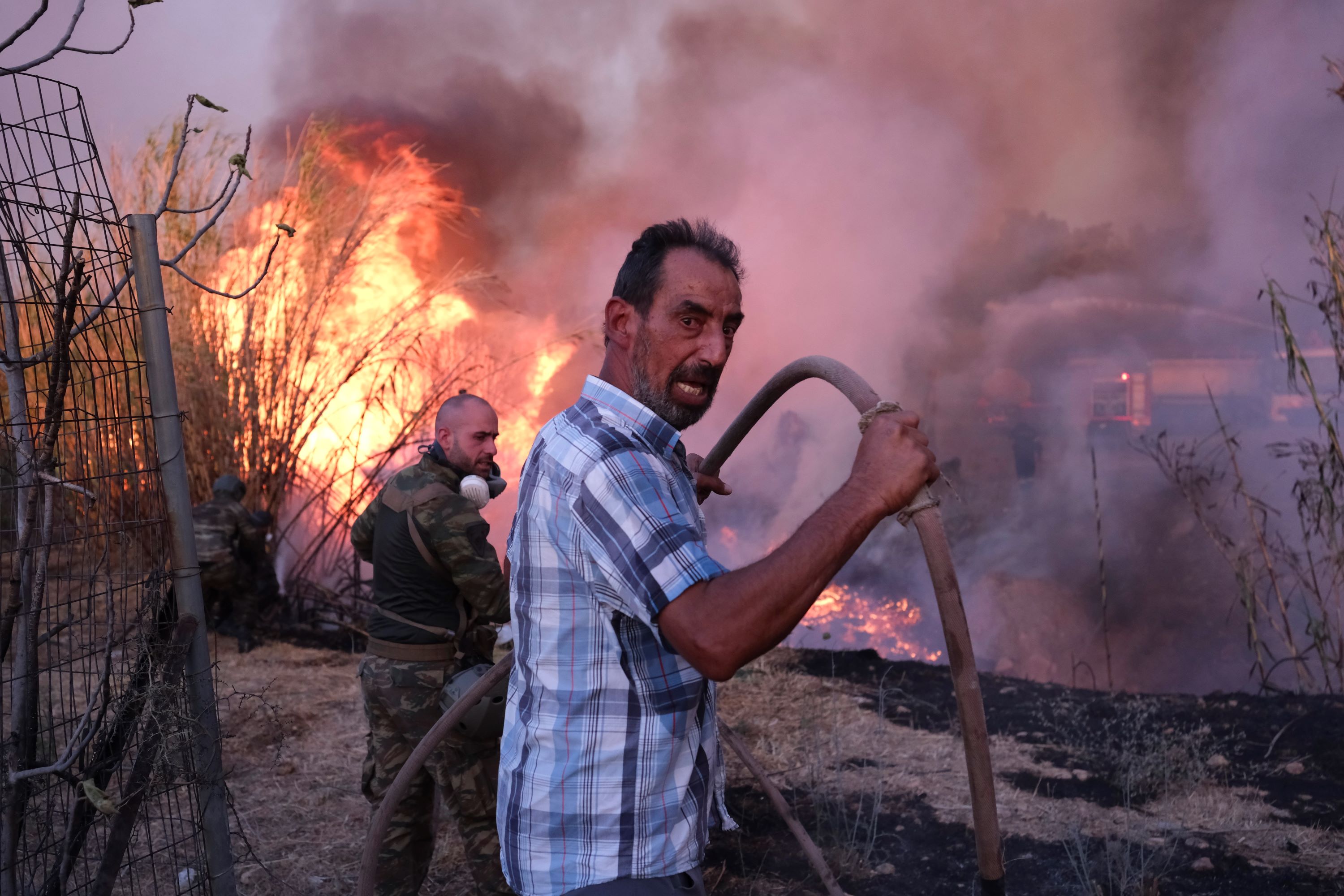
ATHENS - Greece's worst wildfire of the year killed one person and continued to burn on the outskirts of the capital Athens on Tuesday, although lighter winds and firefighting efforts had helped reduce its intensity, authorities said.
Hundreds of firefighters backed by fire engines and waterbombing aircraft battled the blaze that broke out on Sunday near the village of Varnavas 35 km north of Athens and torched homes, vehicles and swathes of bone-dry forest.
Stoked by gale-force winds, the blaze leaped from a wooded, hilly area into the suburbs on Monday, choking the city with smoke and ash and stirring panic in neighborhoods that had not seen such a fire so close to the center in decades.
It reached Vrilissia, around 14 km from central Athens, a day ago, where one person was found dead, according to the fire brigade.
READ MORE: Greek wildfire rages near Athens; towns, hospitals evacuated
The cause of the wildfire was not yet determined.
Winds were expected to pick up again later in the day on Tuesday and the country will remain on high fire alert until Thursday, with strong winds and temperatures forecast to reach up to 40 degrees Celsius.
"The overall picture looks improved but there are still many fronts in various areas," said a fire brigade official.

Wildfires have been a common feature of Greek summers for years, but climate change has brought hotter weather and less rain, ideal conditions for large-scale fires.
READ MORE: Second hottest July breaks 13-month record streak, EU scientists say
The southern European country experienced its warmest winter on record this year and was on track for its hottest summer, with scant rain in many areas for months.
The worsening situation was mirrored across southern Europe, including in Spain and the Balkans.
The Greek fire left in its wake abandoned homes, burned cars and charred fields. Local newspaper Proto Thema said the damage spanned 100 square kilometers and included 100 homes.
ALSO READ: Wildfire torches hillside homes in southern California
Greece has activated the European Civil protection mechanism and is expecting assistance from France, Italy and the Czech Republic with aircraft and firefighters. Spain and Turkey have also offered help.
More than 30 areas were forced to evacuate, along with at least three hospitals, with power cuts in parts of the wider Athens region. Passenger ferries heading to the port of Rafina northeast of the capital were diverted.
Police have helped evacuate more than 250 people, and some residents spent the night in shelters.



